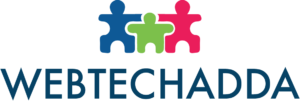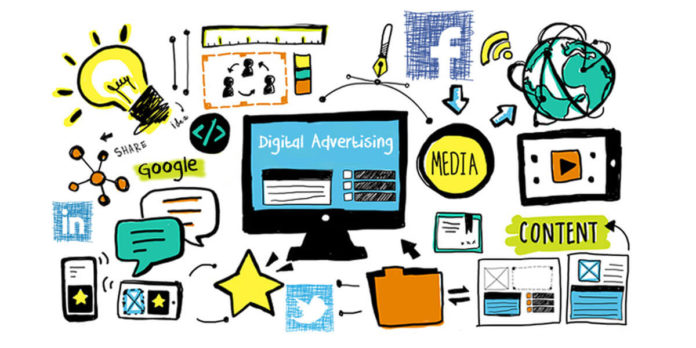Once you know what digital advertising is, you will probably want to venture into the field, here we share some of the most common guidelines formats.
When advertising started to hit the Internet, around 1994, it found its place on websites through large banners , with a CTR of up to 44% (currently the CTR of an average banner could be as low as 0.06%).
By 1997 pop-ups made an appearance, which soon gained popularity, and that quickly they lost it too. The following years saw paid searches and pay-per-click-PPP appear.
The targeting became more and more refined, and the search revolved around less intrusive ads. This is how native and social media advertising appeared.
The future seems to be looking for the most creative ways to present relevant information, highly segmented, aimed at offering consumers content of their interest, without feeling invaded or bothered .
20 years after its first appearance, the question still remains for many, exactly what is digital advertising?
What is digital advertising?
If browsing the Internet you come across an ad, that is classified within digital advertising. It is not at all strange that you see it everywhere, you will usually find ads on every page of every website you visit.
The term is quite broad, within it fits almost all marketing efforts that are executed on a digital level .
This includes banners, search engine optimization (SEO), social media efforts, email marketing, interstitial ads , search engine marketing (SEM ), etc. There is even room for spam.
Digital advertising is moving along with the expansion of the internet , that is why it has moved along with users from platform to platform. For example, as users migrate from the PC to mobile devices, digital advertising does, too.
Some common guideline formats in digital advertising
Listing all the formats in which it is possible to rule on the Internet would be insufferable. The list, in addition to being extremely long, could never be completed, because new ones appear every day and others fall into disuse.
But generally speaking, these are some of the most common pattern formats in digital advertising:
Banners or Traditional Display
It is the pioneer of formats in digital advertising and in general they are quite affordable. These are graphic elements that appear on the websites of a third party. Its most basic forms have evolved and it is now possible to find them in countless and creative varieties.
You can find it as static images, in text form, floating and moving on the screen, animated, in video form or as a form.
Google and its multiple alternatives
Guideline opportunities are varied. Here it is possible to perform:
- Search ads: that appear when a person performs a search that is related to the products or services that your company offers. They can even be displayed in the form of shopping ads, which allow you to buy from Google.
- Graphic ads: Google takes care of placing your ad in the form of a banner or text on news websites, blogs, applications and even in Gmail.
- Video ads : The great advantage that Google has for this is YouTube. These ads can be played before a video is played on YouTube or alongside search results.
Native advertising
This is sponsored content, which is relevant to the consumer experience, which does not interrupt, looks and feels similar to the editorial content of the place where it is located.
According to Hubspot there are 5 keys to native advertising :
- Editorial skills are basic, a great story that generates interaction must be told.
- You must be entertaining. The new generations want entertainment.
- You must align yourself with the interests of consumers, appealing to what they are passionate about.
- You must be relevant to the online activity they are running, you must not interrupt.
- Your ad must be clearly identified as such, you must not try to fool anyone.
Social media is an integral and extremely powerful part of the success of native advertising.
It is one of the fastest growing markets in digital advertising, it is also efficient and effective. They are similar to banners in that they can be from a simple image or a publication, to an autoplay video.
Its great appeal and success is due to the precision with which it is possible to segment an audience. Facebook is one of the leaders in this regard, allowing the use of parameters as specific as age, region, interests, education, among many others.
Facebook is joined by platforms such as LinkedIn, Instagram, Pinterest, Tumblr and Twitter, among which more facilities offer digital advertising.
Email marketing
This is one of the leading channels for sales . It has the advantages of being fairly inexpensive, fast and effective for sales.
It allows to build loyalty and improve sales, while it is possible to use tools that allow you to accurately know the performance and return on investment.
Everything must be built based on a correct strategy, which must be clear as to how to feed the email list, its classification and the ways to contact and follow up on them.
After knowing these guideline formats, you may ask yourself: which one should I choose? Which is the best? Should i use them all?
Like everything that refers to a marketing strategy: it depends . The answers will not be the same for all companies, they will be conditioned by the type of business, the objectives that are in terms of results, public, type of campaign, among many others .
The key is to have a sound marketing strategy that is constantly tested and flexible enough to adapt to the rapid changes that the digital world is experiencing every day.







